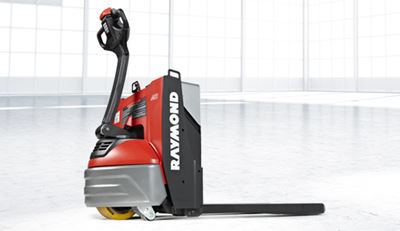UL Listed or UL Recognition: Understanding the marks on your lithium-ion battery

To satisfy growing customer expectations of increased product availability, faster response times and overall lowered delivery costs, warehouses and distribution centers are investing in advanced technologies to assist in addressing these needs. One of these technologies is lithium-ion batteries.
Growth and change in the material-handling industry have been — and continue to be — a huge driving force for new technology and its integration. To satisfy growing customer expectations of increased product availability, faster response times and overall lowered delivery costs, warehouses and distribution centers are investing in advanced technologies to assist in addressing these needs. One of these technologies is lithium-ion batteries.
Lithium-ion batteries are more efficient than lead-acid batteries, helping reduce the overall cost of ownership. The useful life of lithium-ion batteries can be extended with opportunity charging, which eliminates much of the need for recharging midshift and associated operator downtime. Lithium-ion battery packs are one-third the weight of traditional offerings, which means increased portability, and there will be no acid spills.
It’s important to understand that not all lithium-ion batteries are created the same. Chemistries, manufacturing processes, materials and testing protocols will differ from offering to offering. Underwriters Laboratories (UL) offers assistance in navigating these complexities.
UL product testing and certification
As an independent third party, UL performs rigorous product testing to industry standards and evaluates compliance with externally specified product requirements. The testing helps to ensure the safety of products in today’s dynamic market. Products that bear the UL mark offer a measure of trustworthiness in the marketplace for companies.
There are many UL marks that communicate compliance of the products tested. Two of the most known are UL Listed and UL Recognized. If UL finds that representative product samples of lithium-ion forklift batteries have met standard requirements, either in full or with noted conditions of acceptability for the end product, then that product will carry a UL mark. UL marks are commonly found on thousands of product types, including those within the material handling industry.
When you're assessing lithium-ion batteries available in the marketplace, it’s integral to understand the differences among the industry markings that products are given. Here are key differentiators between UL Listed and UL Recognized.
UL Listed
A UL Listed mark is intended for end products and complete components suitable for factory installation. This marking indicates that a product has been tested by UL and meets nationally recognized safety standards.
A UL Listed product example would be a complete lithium-ion battery pack that has a mechanical enclosure and electronic circuit protection and that has demonstrated full construction and testing compliance to the standard’s requirements.
UL Recognized
A UL Recognized mark appears on products that may have restrictions on their performance or may be incomplete in construction. An example of this would be a lithium-ion battery pack that does not include a mechanical enclosure but will have one in the final end product it will be housed in. Products that have a UL Recognized mark are intended to be installed at a factory in another device, system, or end product containing a UL Listed mark.
It is important to remember that although a UL Recognized mark can provide confidence in product components, the overall product must still be evaluated to appropriate safety standards. Errors in installation or using parts that are not UL Recognized can result in not fully tested or certified products.
Global marks
There are multiple mark variations for UL’s Listing service – some are for use in the United States; others are for use in Canada; still more are designated for other foreign markets. Products carrying marks for Canada have been evaluated to meet Canadian safety requirements, which may be different from U.S. standards.
A combination mark indicates compliance with both Canadian and U.S. requirements. All of the products carrying these marks are covered by UL Follow-Up Services to determine that products continue to be manufactured in compliance with UL’s requirements.
Understanding the value of UL marks and the difference between UL Listing and UL Recognition is fundamental in helping to ensure the lithium-ion battery pack you choose for your truck has been rigorously tested and certified. It’s also crucial to keep your trucks running smoothly and for the security of your operators.
Submitted by Erica Moyer, product manager of pallet and stacker trucks, The Raymond Corp.
Plant Services, Today's Optimized Facility

